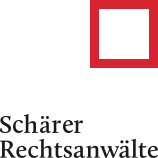Investigations by the World Bank’s Integrity Vice Presidency and how Schärer Rechtsanwälte can support your enterprise
The World Bank's Integrity Vice Presidency (INT) is part of the World Bank Group responsible for investigating fraud and corruption in projects funded by the World Bank. Switzerland-based companies that participate in World Bank-financed projects may be subject to investigations by the INT. If your enterprise is under investigation, it is critical to understand the World Bank's procedures.
This article explores the scope of the World Bank's investigative authority, the sanctions process, the implications of non-compliance.
I. The World Bank’s Integrity Vice Presidency: Mandate and Investigative Authority
The World Bank’s Integrity Vice Presidency (INT) is an independent unit within the WBG responsible for detecting and addressing instances of fraud, corruption, and other misconduct related to World Bank-financed projects.
1. Investigation Triggers
An enterprise may be investigated by the INT if:
- There is evidence of fraud, corruption, collusion, coercion, or obstruction in the bidding or execution of a World Bank-funded contract.
- A whistleblower, competitor, or government agency reports suspicious activities.
- The World Bank detects irregularities through its own monitoring mechanisms.
The INT conducts administrative investigations, which do not require the same level of due process as criminal proceedings, making it easier for the World Bank to impose sanctions.
2. Legal Basis for Sanctions
The INT follows the World Bank Sanctions Procedures, which outline the process for investigating and penalizing companies engaged in prohibited practices. Sanctions are enforced based on findings of sufficient evidence, which is a lower burden of proof compared to criminal investigations.
3. Potential Sanctions
Sanctions imposed by the World Bank can have severe consequences for an enterprise, including:
- Temporary or permanent debarment: Exclusion from participating in World Bank-financed projects worldwide.
- Conditional non-debarment: The firm remains eligible to work on projects but must meet specific compliance conditions.
- Financial restitution: The company may be required to pay back illicit gains.
- Public reprimand: A formal public notice of wrongdoing, damaging the company’s reputation.
- Cross-debarment: Other multilateral development banks (e.g., IMF, EBRD, ADB) may enforce the World Bank’s sanctions, leading to broader industry blacklisting
These penalties can significantly impact a company’s operations, especially if it relies on international financing.
II. Investigation Process: Steps and Key Considerations
1. Initiation of an Investigation
Once the INT receives allegations of misconduct, it follows a multi-step process:
- Preliminary Review – The INT assesses whether the allegations warrant a formal investigation.
- Evidence Collection – Investigators gather documents, conduct interviews, and request information from the firm.
- Notice of Sanctions Proceedings – If sufficient evidence is found, the company is formally notified and given an opportunity to respond.
- Sanctions Decision – A decision is made by the World Bank’s Suspension and Debarment Officer (SDO) or the Sanctions Board.
2. Responding to a World Bank Investigation
Companies facing an INT investigation must:
- Respond promptly: Ignoring an INT notice can lead to automatic sanctions.
- Provide a strong legal defense: Presenting counterarguments and evidence is crucial.
- Negotiate settlements: Firms may be able to reach a negotiated resolution with the World Bank, potentially reducing sanctions.
3. Integrity Compliance Program Requirements
A critical part of resolving an investigation is demonstrating a strong Integrity Compliance Program (ICP), which should include:
- A zero-tolerance policy on corruption.
- Internal monitoring and whistleblower protection mechanisms.
- Periodic compliance audits and training.
- A Code of Conduct that aligns with World Bank Integrity Guidelines.
If a company is sanctioned, compliance with these guidelines is often a condition for reinstatement.
III. How Schärer Rechtsanwälte can support an enterprise under investigation
For Swiss enterprises facing an INT investigation, legal representation is crucial to mitigating penalties, protecting business interests, and ensuring compliance. We provide strategic legal support in the following areas:
1. Legal Representation and Defense Strategies
- Initial Response & Risk Assessment: We will assess the allegations, determine the evidence available, and develop a strong response strategy.
- Negotiating with the World Bank: We engage with the INT and the Sanctions Board to explore settlement options and reduce penalties.
2. Internal Compliance Review & Corporate Governance Enhancement
- Conduct internal investigations to detect compliance weaknesses.
- Implement remedial measures to address identified risks.
- Develop a robust compliance program.
3. Preventive Compliance Measures
Even if an enterprise is not currently under investigation, proactive compliance strategies are essential:
- Training sessions for executives and employees on anti-corruption policies.
- Review of bidding processes to ensure compliance with World Bank procurement guidelines.
- Monitoring supplier and subcontractor conduct to avoid third-party liability.
IV. Case Study: Successful legal defense in a World Bank Investigation
We have successfully represented a company under investigation for fraudulent bidding practices in a World Bank-funded infrastructure project. Key defense strategies included:
- Demonstrating cooperation: We provided full transparency, and cooperated with the INT.
- Support during investigation: We prepared executives of the company before interviews with investigators, sat in on the interviews and analyzed the interview.
- Challenging the allegations: We provided evidence that the company had not violated any World Bank policy.
The case highlights the importance of early legal intervention and a proactive compliance strategy.
V. Conclusion: Legal Expertise is Critical for Navigating World Bank Investigations
For enterprises in Switzerland that are subject to a World Bank Integrity Vice Presidency investigation, early engagement with legal counsel is crucial.
By proactively addressing World Bank compliance requirements and responding effectively to investigations, companies can protect their reputation, financial stability, and long-term global business opportunities.


